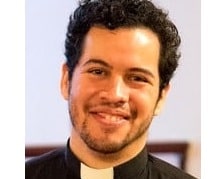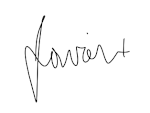As Fr. George announced earlier this week, the communion cup will return on the Second Sunday of Lent. The wine will be available by intinction, i.e., by dipping the host in the cup. All those present at Sunday worship services will be able to receive both the bread and the wine for the first time in nearly two years.
Back in April of 2020, I reflected on what it might mean for us not to be able to take communion for a while. (Little did I know just how long that would take.) Below is an excerpt from that post: a couple of thoughts that are on my mind this week, as I reflect on where we have been and where we might go from here.
“In light of our current moment, I would like to invite you to reflect on two different, but related, matters. First, the Eucharist service in The Book of Common Prayer is appropriately subtitled “The Liturgy of the Proclamation of the Word of God and Celebration of the Holy Communion” (315). Christ is present to us in Word and Sacrament—not one more so than the other, but in both. Much like receiving communion in one kind signifies full participation in the Holy Meal, therefore, I wonder if this time provides us with an opportunity to remember that Christ isn’t bound to bread and wine alone—that Jesus is also present to us in the proclamation of the Word, even if we find ourselves homebound.
The second point has to do with what absence teaches us. Our virtual gatherings have provided us with a wonderful way to remain connected, and yet I’m afraid that leaning too eagerly on virtual connection prevents us from properly grieving what we’ve lost. In a strange way, then, our inability to take communion on Sunday may give us much-needed room to acknowledge the pain of being apart.
To grieve that loss, however, also helps us name what we desire more clearly. I don’t simply want to go back to business-as-usual once this is over: I long for a gathering that more perfectly reflects God’s dream for us.”
As we make the steady transition into yet another new normal, I know that some will think we are moving too slow; while others, too fast. To be perfectly honest, I find myself in both camps just about every day. I take comfort in remembering the stories from the Book of Acts these days: how they lay out, not the church in perfect harmony, but a community negotiating conflict and difference from Day One.
And yet the story doesn’t end there. It ends in the heavenly banquet, with a people gathered from every tongue, tribe, people, and nation (Rev 7:9-17). As I see it, the question before us today—and everyday—is simply this: if that is indeed our end, how might we live into it now?
–Fr. Javier


